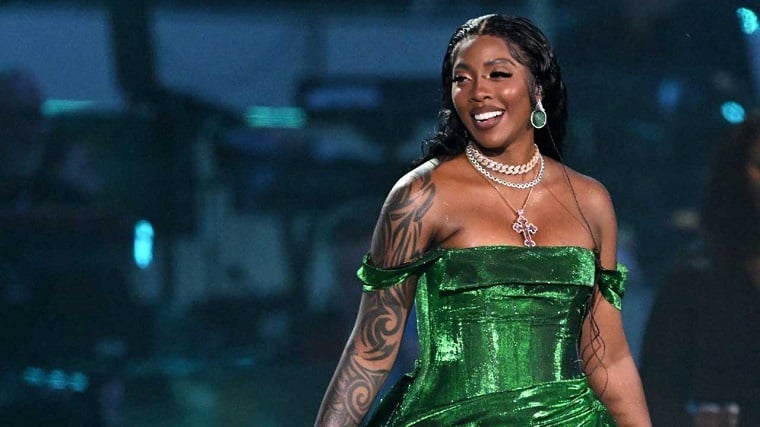Afrobeats star Tiwa Savage has ignited discussions in Nigeria about her place in the music hierarchy, asserting that her talent surpasses that of three prominent artists—Wizkid, Davido, and Burna Boy. This trio has long been recognized as the dominant figures in Nigerian music, often referred to as the “Big 3.” However, there has been a growing sentiment among fans and critics that a fourth member should be acknowledged, with Tiwa, Rema, and Asake frequently being suggested for this spot. The debate reflects a wider discussion in the music industry about what defines success and prominence in a rapidly evolving landscape.
In a recent interview with The Beat 99.9 FM, Tiwa did not shy away from making her case for inclusion among the elite. When asked if she felt part of the established trio, she boldly asserted, “Talent for talent, mic for mic, I am the big 1.” Her confidence in her abilities highlights her belief that when it comes to raw musical talent, she outshines her peers. Tiwa put forth the idea that traditional rankings based on streaming numbers and commercial success do not accurately represent artistic skill, arguing that her capabilities on the microphone are unmatched.
Tiwa’s claim raises important questions about the criteria used to evaluate musicians and their success. Many in the music industry note that while streaming numbers and chart performance are tangible metrics of success, they cannot fully encompass an artist’s prowess, creativity, and overall impact on the music scene. Tiwa’s assertion suggests a separation between artistic merit and commercial success, encouraging a reevaluation of how artists are perceived and ranked in the growing Afrobeats genre. This perspective resonates with fans who appreciate the artistry and hard work that goes into music beyond mere numbers.
The conversation surrounding Tiwa Savage’s comments reflects her position as a trailblazer in Nigerian music, particularly as a woman in a male-dominated industry. Her confidence and willingness to speak out not only highlight her own achievements but also pave the way for discussions about gender dynamics within the African music scene. Many female artists have struggled for recognition alongside their male counterparts, and Tiwa’s bold stance may inspire others to assert their own talents and push for equality in an industry that remains challenging for women.
Despite the ongoing debate, Tiwa recognizes the significant contributions and artistic merits of Wizkid, Davido, and Burna Boy. Each of these artists has played a pivotal role in popularizing Afrobeats both locally and internationally, making their mark on the industry in various ways. Yet, Tiwa’s insistence on her own skills and artistry suggests a desire for new narratives within the genre—narratives that celebrate diversity, recognize talent across the spectrum, and include artists regardless of their gender or background.
In conclusion, Tiwa Savage’s bold claim about her standing in Nigerian music has stirred a dynamic conversation about talent, gender, and the metrics of success in the music industry. As the Afrobeats genre continues to rise in popularity, the discourse initiated by her remarks highlights the need for a broader understanding of what it means to be a leading artist today. By fostering such discussions, Tiwa not only asserts her place among the greats but also contributes to an evolving narrative that recognizes the varied contributions of artists in an ever-changing musical landscape.














